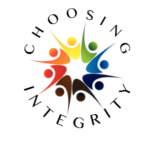I’m stepping outside my comfort zone with the content of this blog post as I never write about local issues or personal experiences.
While I completely understand the general concept that “life is about choices,” I think this notion is often misunderstood and is used in a context lacking empathy and understanding. It reminds me of the mentality in this statement: “You get what you deserve.”
If you’ve never walked in someone’s shoes (that’s what empathy is) it’s wise to refrain from judgments and even wiser to realize that life is about growth and life is about healing — and not necessarily in that order.
Over my career I worked with thousands of inner-city, marginalized populations incarcerated in the federal prison system. Not a single individual I worked with chose to have cognitive deficiencies caused by being born of a crack-addicted mother or having to live in the poverty and violence of a New York City housing project.
I once knew a young man. Let’s call him John, who was raised in a stable, suburban family that emphasized values such as faith, honesty and integrity. John had all the needed emotional support; yet he was arrested at age 16, prosecuted in juvenile court and declared a “delinquent.” Fortunately, the local court had the resources and John was allowed to participate in a diversionary program in which he avoided a conviction and juvenile placement. The experience was a wake- up call and he went on to make better choices. He often tells people there was a fine line in his life where he could have had a life in and out of state prison rather than a career working in the Federal prison system.
To be honest, I’m John! My point is that if someone with family and court support could find themselves on that edge, I can’t even imagine how the truly traumatized cope in today’s world, given the deterioration of the family, domestic abuse, bullying and the rampant promotion of crystal meth, heroin and Fentanyl.
Rather than judge behavior and cheer for punishment, we need a better balance of treatment by identifying the underlying factors that led to the involvement with the justice system. We can then provide evidenced-based programs that are helpful for many in turning things around.
Rural communities like Pike County have been profoundly impacted by the drug epidemic, lack of employment opportunities but more importantly the lack of meaningful mentorship and diversionary programs and resources for our young adults. I am confident Choosing Integrity can be a positive force in our community to help young adults choose healing, growth and recovery so they can become productive members of their family and community.
Jack Donson
